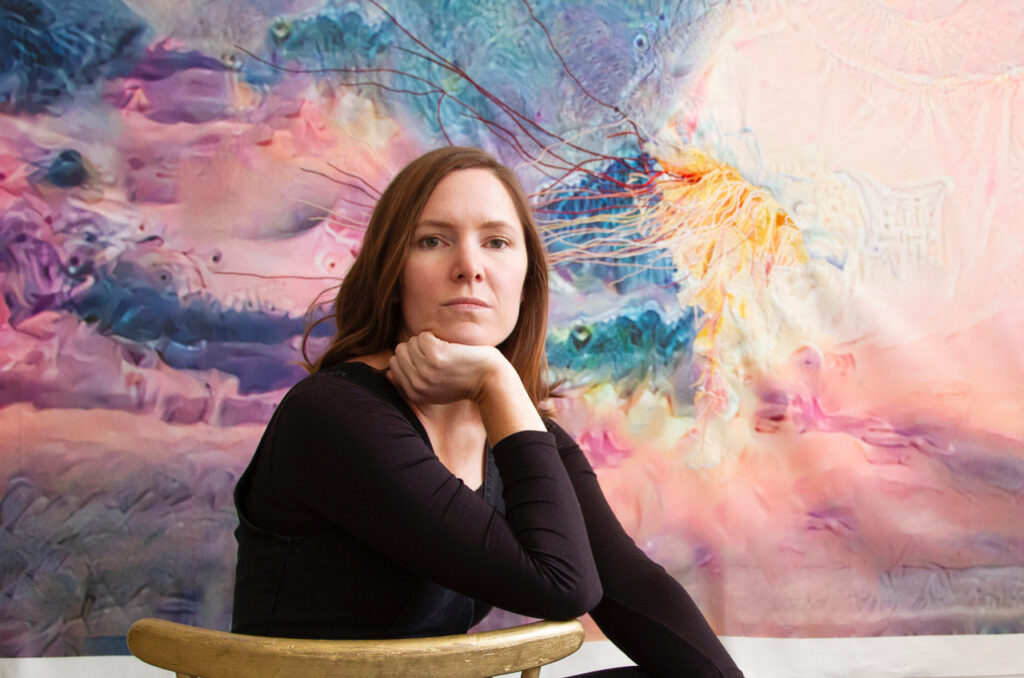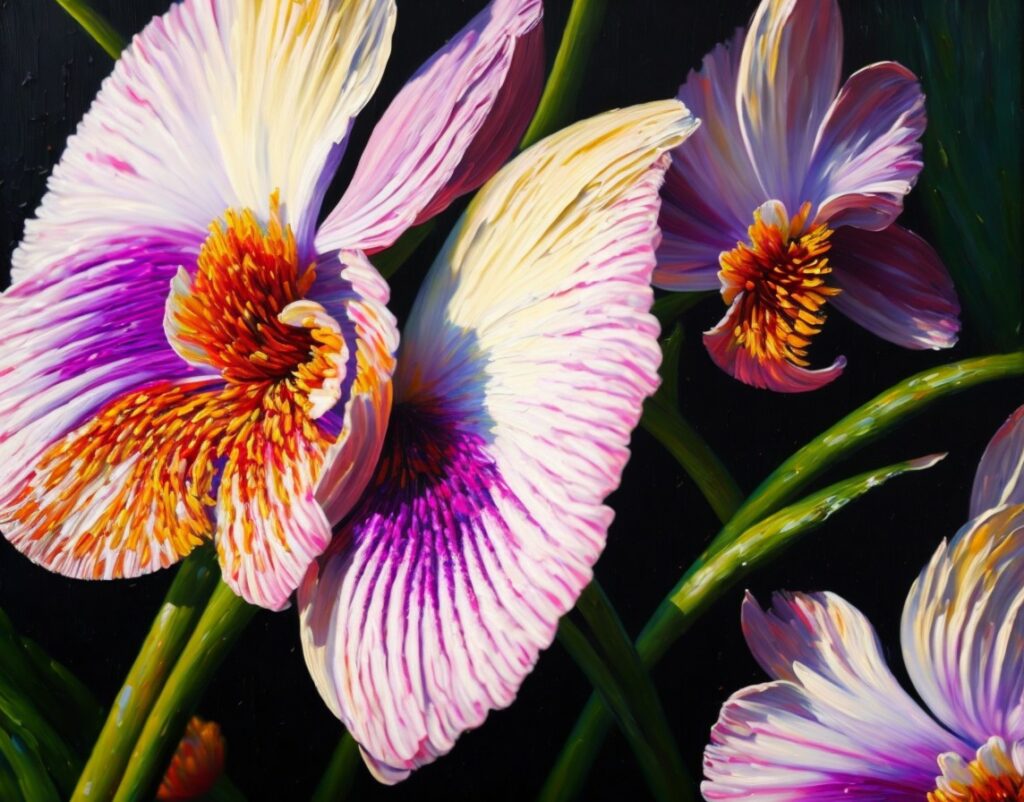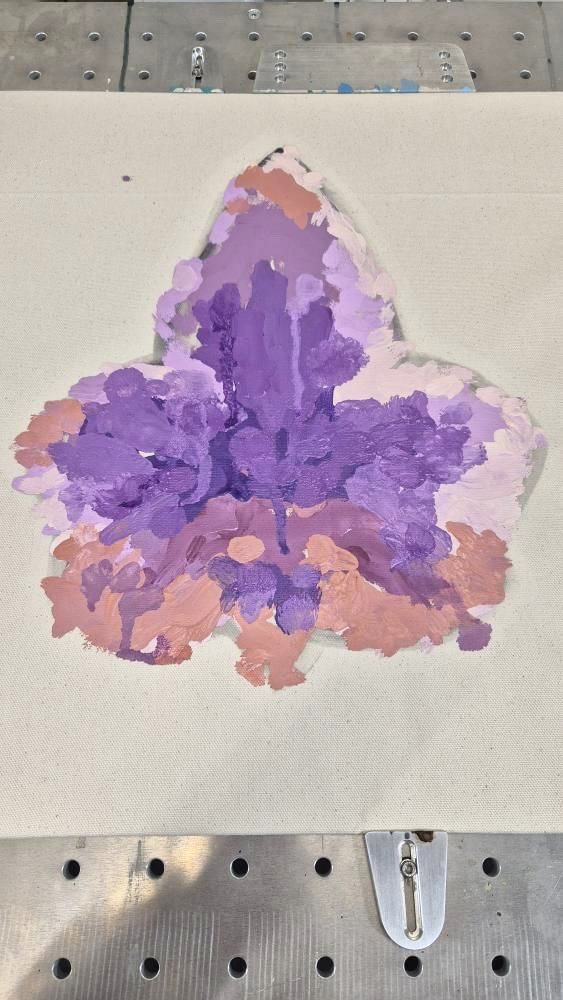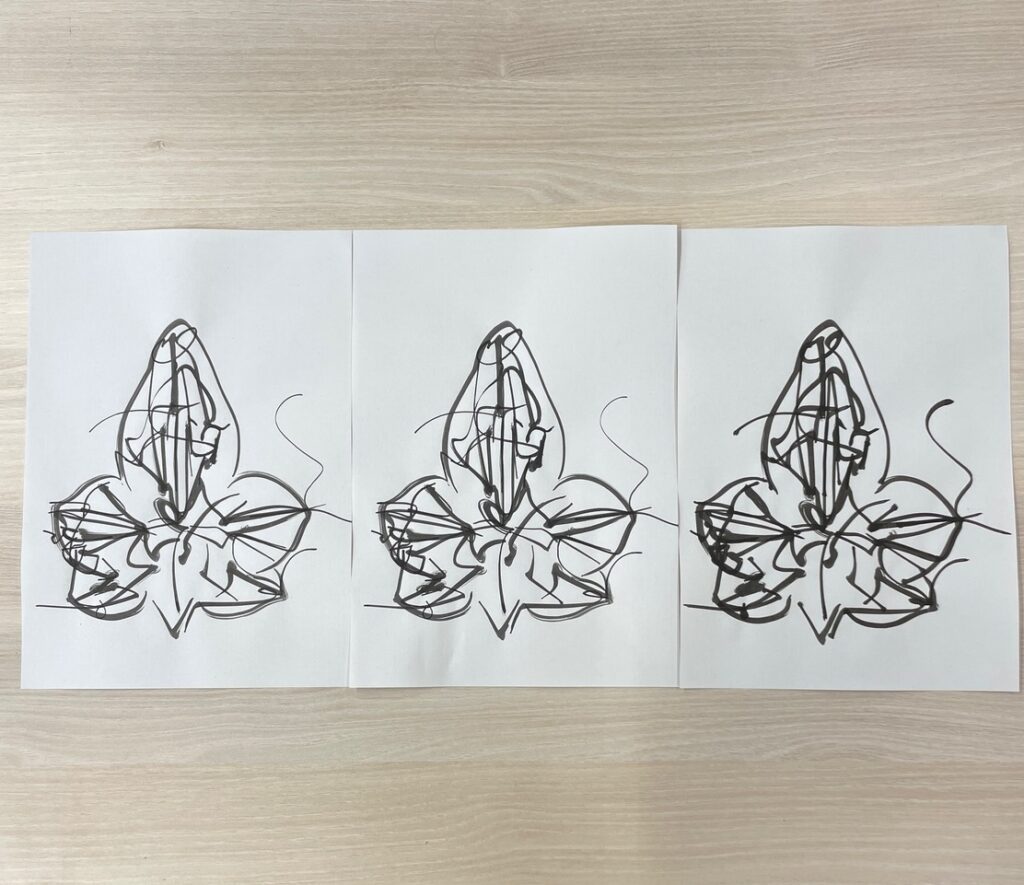Gretta Louw
ARTIFICIAL ORGANISMS AND ANIMATE MACHINES
Personal Biography
Gretta Louw is a South African-born Australian artist, writer, and curator. Her practice investigates the tensions between sensuality and efficiency; craft and automation: in short, the technosphere and the biosphere. Louw graduated from the University of Western Australia in 2002, subsequently living in Japan and New Zealand, before moving to Germany in 2007. Her work has been exhibited widely in public institutions and galleries such as the Wro Media Art Biennale 2021 (PL), Tang Contemporary (HK), Honor Fraser Gallery (US), Plus One Gallery (BE), Kunstmuseum Solothurn (CH), Münchner Stadtmuseum (DE), National Portrait Gallery (AUS), Furtherfield (UK), and LABoral (ESP). She has been the recipient of awards including the Curt Wills Prize (2022), a Kulturstiftung des Bundes Grant (2022), an Australia Council Career Development Grant (2019), a Visual Art Prize from the Cultural Department of the City of Munich (2019), the Bahnwärter Stipendium from the City of Esslingen am Neckar (2017), and the Heinrich Vetter Preis of the City of Mannheim (2014), amongst others.
Louw has curated thematic exhibitions at museums including the Villa Merkel (DE), Furtherfield Gallery (UK), and Paul W. Zuccaire Gallery (US) and contributed essays to numerous catalogues and publications. Her artwork and curatorial projects have been covered by press outlets including Artlink Magazine, Tatler Magazine, Vogue Hong Kong, Hyperallergic, Kunstforum, Motherboard, AQNB Magazine, Süddeutsche Zeitung, and others. She currently lives and works in Germany.

Project
Perceptions of beauty or aesthetic pleasure are highly culturally and temporally specific. Advancing digital technologies – everything from social media filters to the ubiquity of digital cameras and AI-generated images – have radically changed the contemporary definition of beauty. In some cases this leads down a more manipulated or artificial path, but on the other hand it leads to a longing for, and greater appreciation of, ‘natural’ beauty. Our appreciation of ‘nature’ itself is not timeless – the cultivation of specific genres of gardens, or widespread obsessions with particular plants and flowers (such as the so-called ‘tulipmania’ during the Dutch Golden Age), have followed marked trend patterns and been used throughout history to signify, for example, wealth, taste, or social status. A unifying thread throughout my work — which merges digital and algorithmic tools with traditional art production methodologies such as embroidery and oil painting, contrasting heritage and cutting edge technologies — is an examination of the inextricable intertwining of culture, nature, and technology.
In Artificial Organisms and Animate Machines as part of the EACVA collaboration, I will realise a series of small format oil paintings that integrate AI and robotic creative expression and perceptions of beauty with human authorship and subjective aesthetic preferences. Starting with photographs of physical orchids (a flower that uniquely embodies the human quest for beauty through technical interventions in seemingly ‘natural’ subjects — embodying the interactions of aesthetics and artifice, culture, economic interests, and science), I will take turns with the AI and robotic collaborators to morph and recreate the images both digitally and as a series of physical oil paintings so as to create a body of work that delves ever deeper into a new, co-created technoaesthetic or technoromanticism. In working with the scientists and researchers at Goldsmiths College and Konstanz University, I am especially interested in discussing the aesthetic, philosophical, and technical aspects of how an algorithm can be trained for maximising ‘beauty’, how this can be translated into software governing robotic painting systems, and how this will impact the viewer experience of the works.

Recent Progress
Over the past few months, my research project as part of the EACVA artist residency – Artificial Organisms and Animate Machines – has made progress examining AI and robotic creativity within the context of aesthetic beauty. The whole EACVA team convened in London at Goldsmiths and the Victoria and Albert Museum in May, laying the groundwork for the next 12 months of collaboration. Thereafter, my work began by engaging with AI systems, generating orchid images that reflect machine learning’s interpretations of beauty and rarity. At the University of Konstanz in July, I completed two robotic oil paintings, experimenting with different algorithmic approaches and mediums together with technical experts Michael Stroh and Daniel Berio. These works mark the beginning of a series that blends human authorship with AI and robotic collaboration, reflecting a technoaesthetic exploration of nature and artifice.
What is most fascinating here is the intricacies of embodiment. Trouble-shooting robotic movement sequences to solve very physical problems around paint viscosity and application that are hugely deterministic of aesthetic. Analysing and adapting algorithmic and machine learning processes that guide the painting robot / embodied creative agent provide curious insights into the unconscious and instinctive (embodied) thought processes behind human painting methodologies. Some of the robot’s unexpected strategies and movements are baffling, while others have the potential to be creatively inspiring. I am paying particular attention to the interaction and exchange between myself as a human painter and the robotic and AI painting system, considering ways in which each of our processes can influence the other.
The next phase involves hand-recreating these robotic paintings, using insights from the AI-driven processes to develop new painting techniques that can be recreated in the studio. Thereafter I will be returning to Konstanz for further robotic painting scheduled at the e-David robotic painting lab in October. This ongoing collaboration continues to push the boundaries of how culture, technology, and nature intersect in contemporary art.


Links
Website: https://www.grettalouw.com/